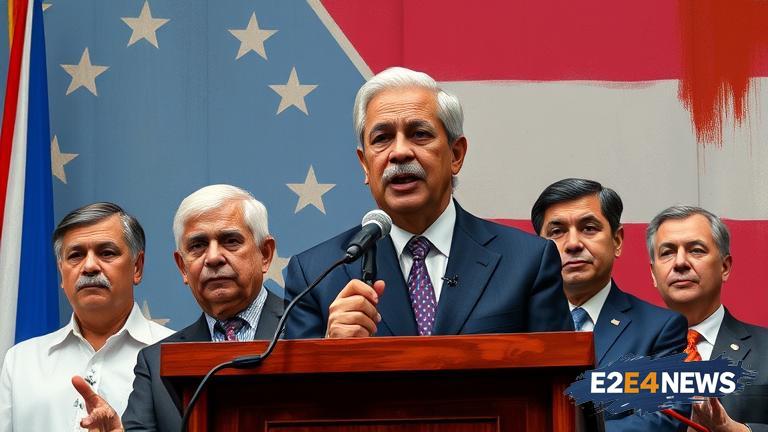The Costa Rican government has been hit with a major reshuffle as seven top ministers have decided to step down from their positions. The ministers, who were part of President Rodrigo Chaves’ cabinet, cited various reasons for their resignation, including personal and health issues. The sudden departure of these high-ranking officials has sent shockwaves throughout the country, with many wondering what prompted their decision. According to sources, the ministers had been facing intense scrutiny and criticism from the public and opposition parties, which may have contributed to their resignation. The ministers who stepped down include the Minister of Finance, Minister of Education, Minister of Health, Minister of Security, Minister of Environment, Minister of Tourism, and Minister of Agriculture. Their resignation has been accepted by President Chaves, who has promised to appoint new ministers to fill the vacant positions. The president has also assured the public that the government will continue to function normally despite the changes. The opposition parties have welcomed the resignation of the ministers, citing their failure to deliver on their promises and their involvement in various controversies. The resignation of the ministers has also sparked debate about the country’s economic and social policies, with many calling for a change in direction. Costa Rica has been facing several challenges in recent years, including a struggling economy, high levels of crime, and environmental degradation. The government has been under pressure to address these issues, but so far, their efforts have been met with limited success. The resignation of the ministers may be seen as an opportunity for the government to reboot and refocus its efforts on addressing the country’s pressing problems. However, it remains to be seen whether the new ministers will be able to make a significant impact. The Costa Rican government has been known for its stability and continuity, but the recent resignation of the ministers has raised questions about the country’s political future. The international community will be watching closely to see how the situation unfolds and how the new ministers will shape the country’s policies. In the meantime, the people of Costa Rica will be waiting with bated breath to see what the future holds for their country. The resignation of the ministers has also raised concerns about the country’s ability to attract foreign investment and maintain its reputation as a stable and secure destination. The government will need to work hard to restore confidence and demonstrate its commitment to good governance and transparency. As the situation continues to unfold, one thing is clear: the resignation of the ministers marks a significant turning point in Costa Rica’s political history. The country is at a crossroads, and the decisions made in the coming weeks and months will have a lasting impact on its future. The government must prioritize the needs of its citizens and work towards creating a more prosperous and equitable society. Only time will tell if the new ministers will be able to rise to the challenge and lead the country towards a brighter future. The people of Costa Rica deserve a government that is accountable, transparent, and committed to their well-being. The resignation of the ministers is a wake-up call for the government to reflect on its priorities and make a fresh start. With the right leadership and vision, Costa Rica can overcome its challenges and emerge stronger and more resilient than ever before.
